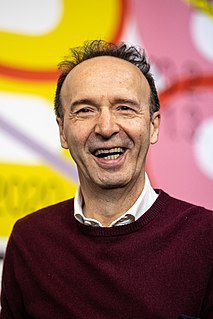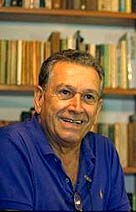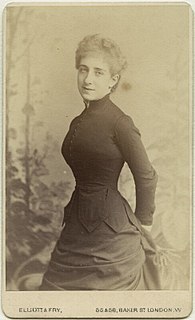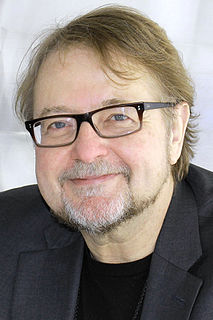A Quote by Lord Byron
For a man to become a poet (witness Petrarch and Dante), he must be in love, or miserable.
Related Quotes
Dante Alighieri was not only a Christian poet or a priest, he was a man. He was a real poet. We can understand that the goal of Divine Comedy is beauty. You don't need also to understand Italian or to know Italian, because when Dante's writing, when we recite Dante out loud, it explodes a cosmos of illumination like to recite music, a symphony.
A musician must make music, an artist must paint, an poet must write, if he is to be ultimately at peace with himself. What a man can be, he must be. This weed we call self-actualization….It refers to man’s desire for self-fulfillment, namely to the tendency for him to become actually in what he is potentially: to become everything one is capable of becoming.
It's a bit of the very last verse from Paradiso- Dante's Paradise. 'My will and my desire were turned by love, the love that moves the sun and the other stars.' Dante was trying to explain faith, I thnk, as an overpowering love, and maybe it's blasphemous, but that's how I think of the way that I love you. You came into my life and suddenly I had one truth to hold on to- that I loved you, and you loved me.
The pursuit of happiness is a great activity. One must be open and alive. It is the greatest feat man has to accomplish, and spirits must flow. There must be courage. There are no easy ruts to get into which lead to happiness. A man must become interesting to himself and must become actually expressive before he can be happy.
There is this tendency to think that if you could only find the magic way, then you could become a poet. "Tell me how to become a poet. Tell me what to do." . . . What makes you a poet is a gift for language, an ability to see into the heart of things, and an ability to deal with important unconscious material. When all these things come together, you're a poet. But there isn't one little gimmick that makes you a poet. There isn't any formula for it.
A true poet is more than just a man who can write a poem with a pen. A true poet writes poetry with his very life. A true poet doesn't use poetic devices to con the heart of a woman but uses the beauty of all that is poetic to serve, cherish, and express love to the heart of a woman. Just as a true warrior is not a conqueror of femininity but a protector of femininity, a true poet is not just a wooer of a woman's heart but one who knows how to nurture and plant love in a woman's heart. Simply put, a true poet is a man who knows how to be intimate with a lover - first and foremost with Christ.
In a way, that's also a recognition that Dante needs Virgil and that the Inferno needs the Aeneid and that the epic needs a model and that for Dante to write this great poem he needs someone to come before him and he turns to Virgil's text, especially book six where Aeneas goes down into the underworld. And for me, that's a model of the poet's relationship to previous poetry, to another poetry as calling out for guidance.
Laughter, on the other hand, " Petrarch went on, "is an explosion that tears us away from the world and throws us back into our own cold solitude. Joking is a barrier between man and the world. Joking is the enemy of love and poetry. That's why I tell you yet again, and you want to keep in mind: Boccaccio doesn't understand love. Love can never be laughable. Love has nothing in common with laughter.







































